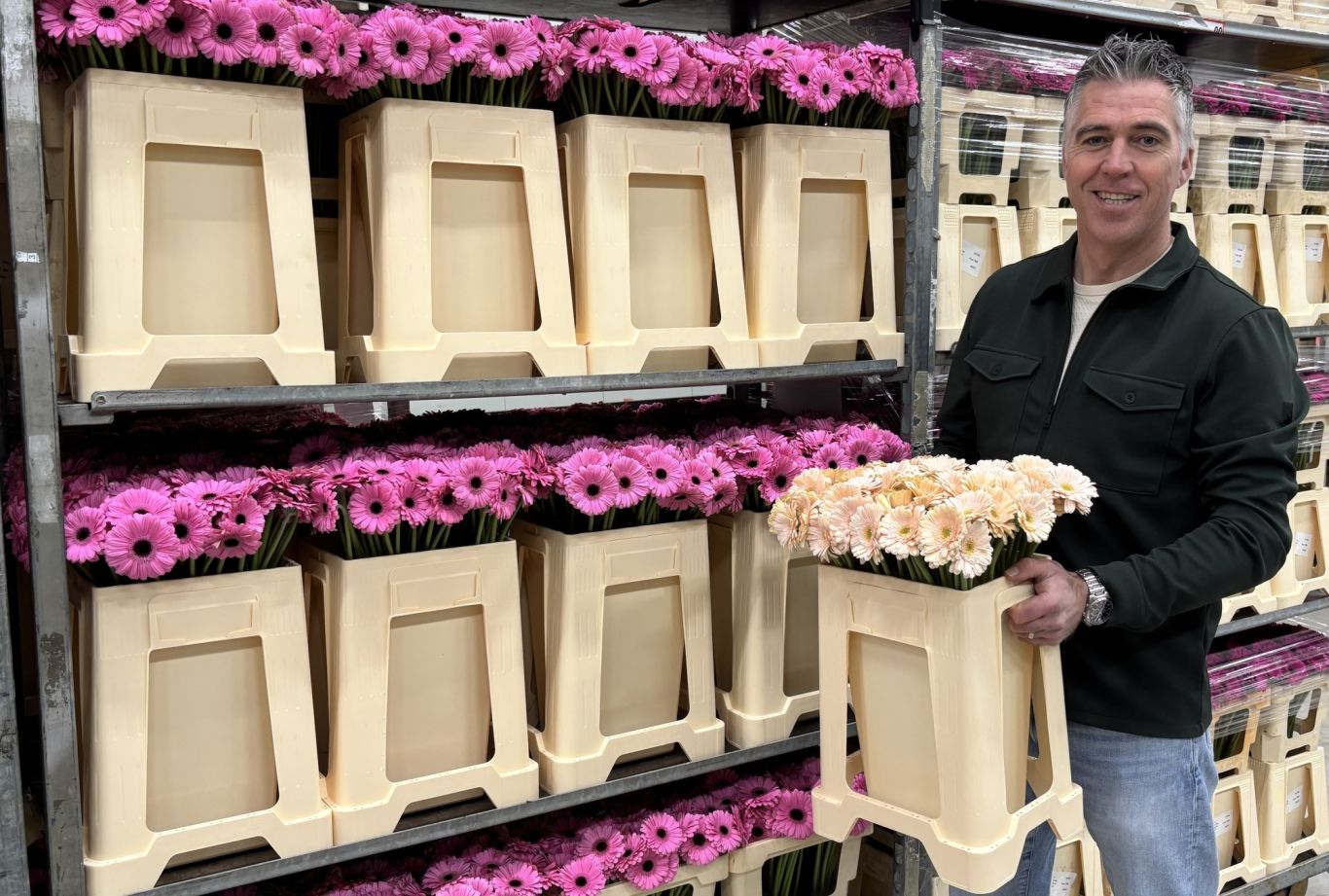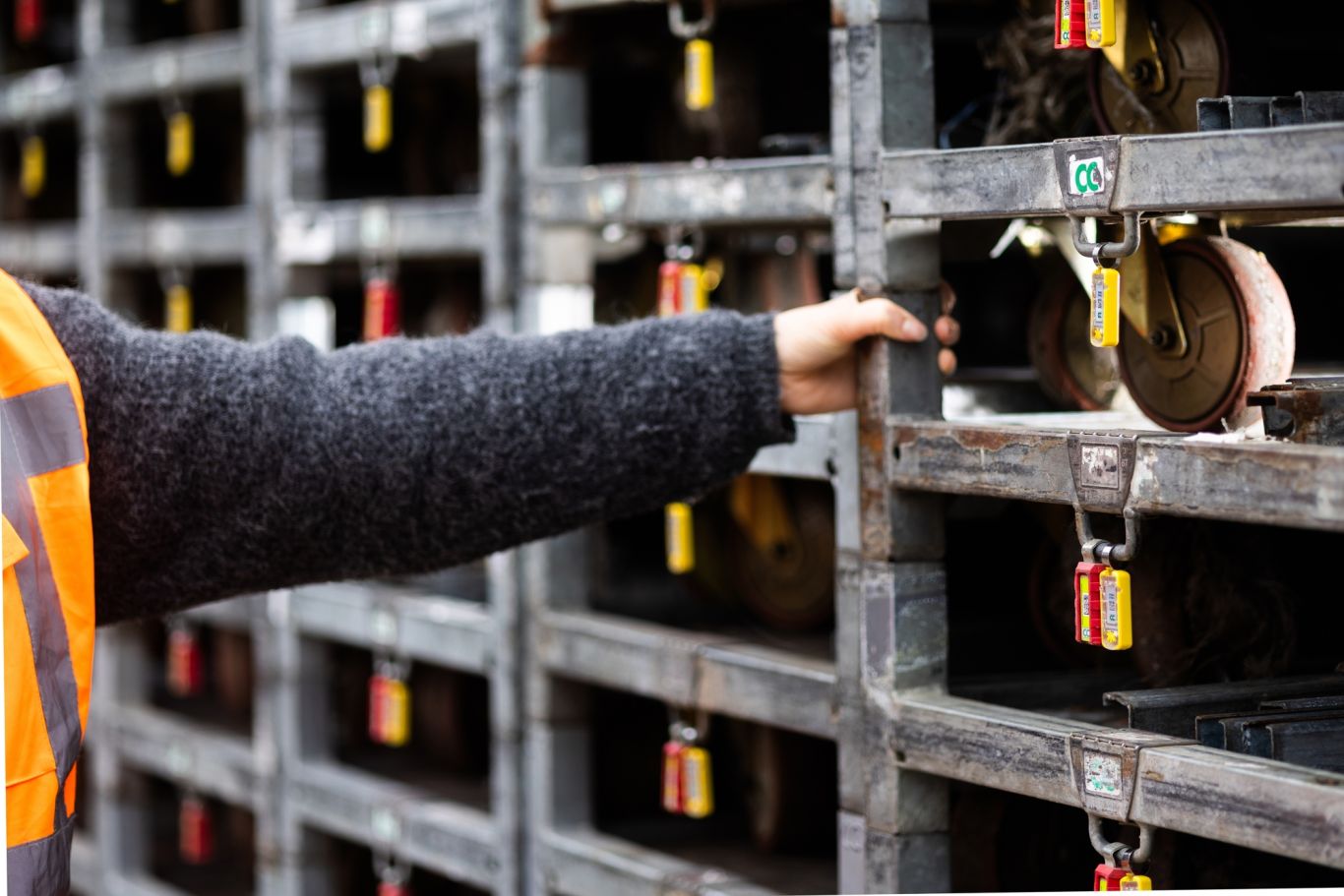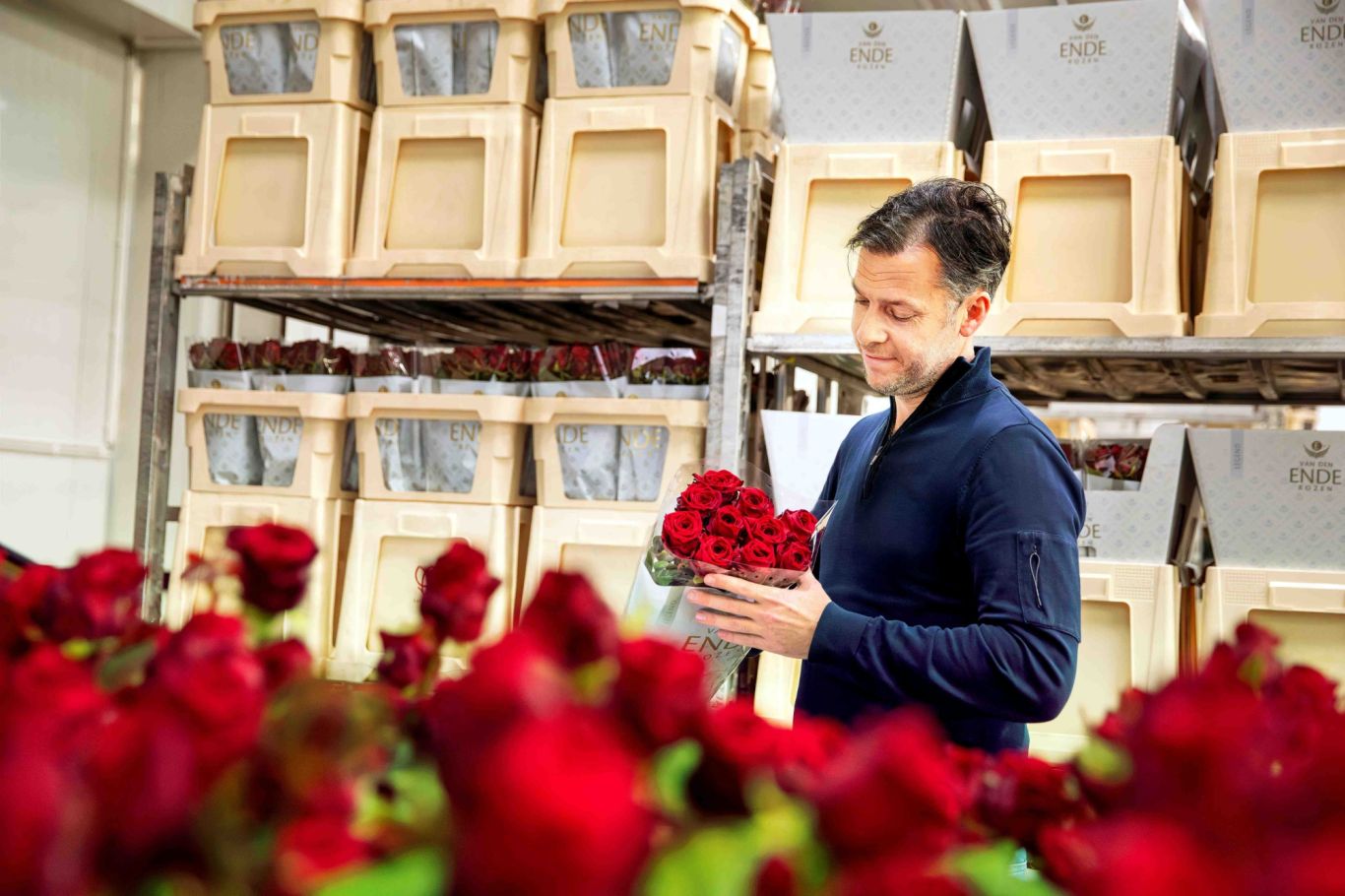Royal FloraHolland joins HSPI
October 22, 2024

Last July, Royal FloraHolland joined the Horti Sustainable Packaging Initiative (HSPI). This initiative provides us with the opportunity to actively contribute to reducing the environmental impact of packaging. Our participation in HSPI offers benefits to our growers and buyers. By working towards common, sustainable standards, we help our customers with tools and solutions to make packaging more sustainable. This not only contributes to a better environment, but also aligns with market requirements and EU legislation.
We believe in the power of cooperation within the sector to reduce the environmental impact of packaging in the floriculture chain in the coming years.
HSPI: accelerating towards more environmentally friendly packaging
HSPI is a collaboration between 13 packaging suppliers, active within the floriculture sector, who are committed to making flower and plant packaging more sustainable. The aim is to accelerate the transition to more environmentally friendly packaging. This dovetails perfectly with the upcoming EU Packaging and Packaging Waste Regulation (PPWR), which requires companies to design and use recyclable and circular packaging.
Three main themes, three working groups
HSPI focuses on three themes, divided into working groups, in which solutions are developed that HSPI participants will apply to achieve the goal.
1. Chain transparency & certification: A set of reliable certificates ensures the sustainability of packaging and helps companies provide transparency regarding their used packaging. Transparency on social and environmental aspects is a decisive prerequisite for corporate sustainability. By using the proposed certificates from HSPI participants, we are taking a significant step in this direction. At the end of November, the ‘Basket of Standards’ will be launched, containing recognised certificates for the use of recycled plastic, for example.
2. Circularity in materials and packaging: This theme examines which packaging meets European recyclability and circular economy standards. After the study, an advisory document is prepared with packaging, which complies with the EU’s PPWR.
3. Footprinting and life cycle assessments (LCAs): This working group is exploring how packaging manufacturers can further reduce the environmental impact of their own packaging. Clearer agreements on methods, criteria and tools based on the FloriPEF methodology help to identify areas in the packaging chain where high CO2 emissions occur, enabling targeted actions to reduce environmental impact.
Together with our partners within HSPI, we continue to work towards a more sustainable future for the floriculture sector.
We believe in the power of cooperation within the sector to reduce the environmental impact of packaging in the floriculture chain in the coming years.
HSPI: accelerating towards more environmentally friendly packaging
HSPI is a collaboration between 13 packaging suppliers, active within the floriculture sector, who are committed to making flower and plant packaging more sustainable. The aim is to accelerate the transition to more environmentally friendly packaging. This dovetails perfectly with the upcoming EU Packaging and Packaging Waste Regulation (PPWR), which requires companies to design and use recyclable and circular packaging.
Three main themes, three working groups
HSPI focuses on three themes, divided into working groups, in which solutions are developed that HSPI participants will apply to achieve the goal.
1. Chain transparency & certification: A set of reliable certificates ensures the sustainability of packaging and helps companies provide transparency regarding their used packaging. Transparency on social and environmental aspects is a decisive prerequisite for corporate sustainability. By using the proposed certificates from HSPI participants, we are taking a significant step in this direction. At the end of November, the ‘Basket of Standards’ will be launched, containing recognised certificates for the use of recycled plastic, for example.
2. Circularity in materials and packaging: This theme examines which packaging meets European recyclability and circular economy standards. After the study, an advisory document is prepared with packaging, which complies with the EU’s PPWR.
3. Footprinting and life cycle assessments (LCAs): This working group is exploring how packaging manufacturers can further reduce the environmental impact of their own packaging. Clearer agreements on methods, criteria and tools based on the FloriPEF methodology help to identify areas in the packaging chain where high CO2 emissions occur, enabling targeted actions to reduce environmental impact.
Together with our partners within HSPI, we continue to work towards a more sustainable future for the floriculture sector.
-
Did you find this interesting?
Then share this article


